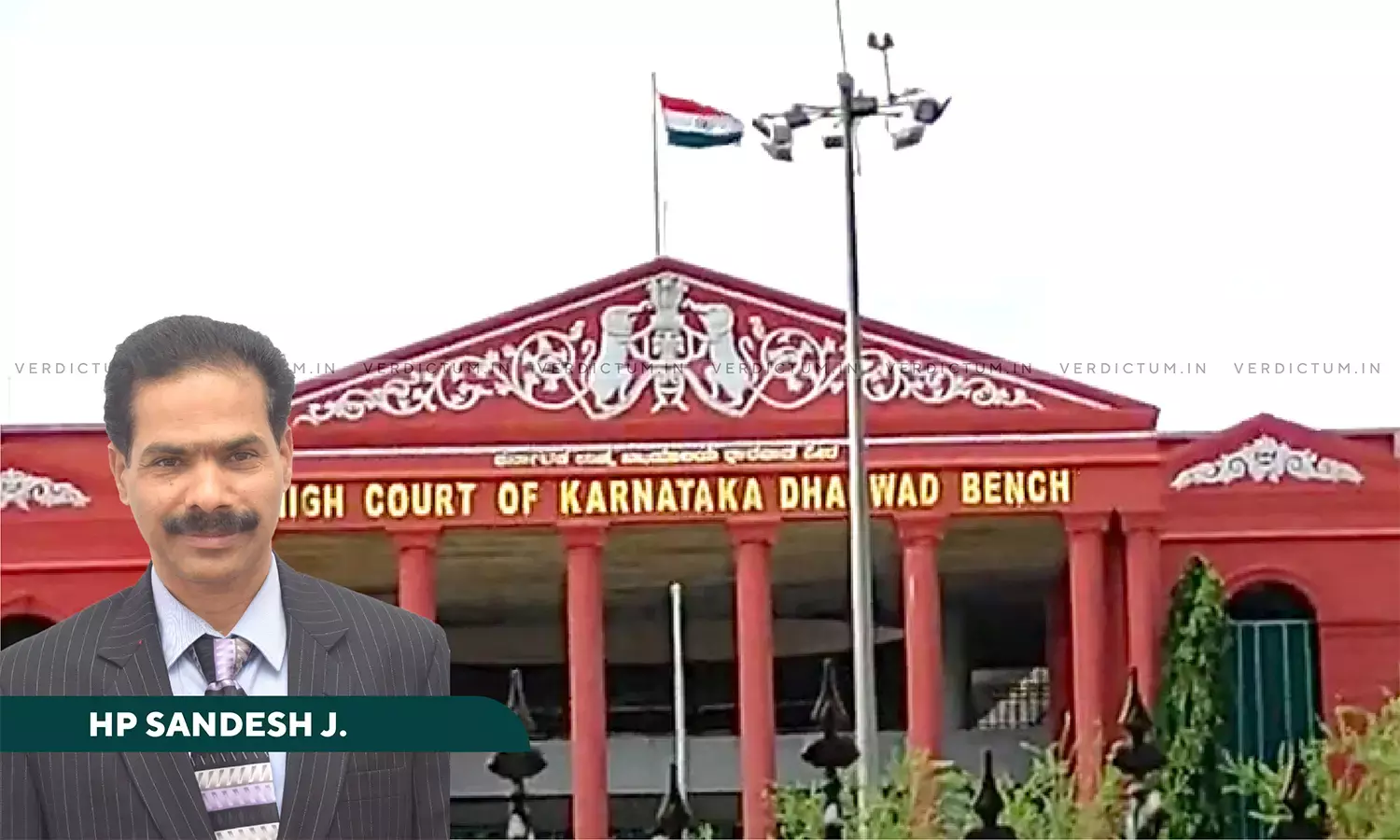Principles Of Strict Liability Applies On Railways Even If Deceased Mistakenly Traveled Beyond Destination: Karnataka HC
The Karnataka High Court has found Railways to be strictly liable for compensating a deceased passenger who mistakenly travelled beyond his destination and met with an an accident thereafter.
The Court was considering an appeal by the Insurance Company against Railway Tribunal's decision to award compensation to a passanger they allege was not a bonafide passenger.
The single-bench of Justice H.P. Sandesh observed, "The deceased might have fallen while trying to get down and in that process he could have received injuries, which the fact is in line with the statement of witnesses and also the post mortem report. The fact that the deceased was travelling in the train is not in dispute, but only mistakenly he traveled beyond destiny and also the Apex Court in the Prabhakaran’s case also held that principles of strict liability applies, the defendant has to pay damages for injury caused to the plaintiff, even though the defendant may not have been at any fault."
The Petitioner-Insurance Company was represented by Advocate H. Shanthi Bhushan.
The factual matrix of Claimants before the Railway Tribunal was that the deceased on 14.02.2009 came to Whitefield Railway Station and purchased one journey ticket from Whitefield to Kuppam and boarded the train Mysore-Tirupati passenger. Further, it was the case of the Claimant that the train was heavily crowded and that when the train reached Kuppam Railway Station due to the incoming and outgoing passengers the deceased could not get down at Kuppram station but tried to reach the doorway and in the meantime due to sudden jerk and jolt of the train travelling between Kuppam and Mallanur railway station, he accidentally slipped and fallen down from the train on the midnight of 14.02.2009 and sustained serious injuries and died on the spot.
It was contended that the Claimants were not entitled to any compensation as the deceased was holding a ticket to travel from Whitefield to Kuppam and his body was lying beyond Kuppam Railway Station and that itself shows that the deceased was not a bonafide passenger.
The Court referred to Union of India V/s Prabhakaran Vijayakumar and Other wherein it was held that since the provisions for compensation in the railways act is a beneficial piece of legislation, it should receive a liberal and wider interpretation and not a narrow and technicalone. It was held that interpretation which advances the object of the statue and serve its purpose should be preferred under such circumstances Court has to bear in mind the very purpose of this enactment and also held that in this case in my view, the passenger who has traveled beyond his destination in such a situation would be covered within the definition of the passenger with a valid ticket.
It also cited slew of other similar High Court judgements on the issue and observed, "Having taken the principles laid down in the judgment of Apex Court and also taking into note of with the advance of industrialization, the Laissez Faire Theory was gradually replaced by the theory of the Welfare State, and in legal parlance there was a corresponding shift from positivism to sociological jurisprudence and the Court has to take note of liberal approach and the same was taken note of by the Railway Tribunal. The very same judgment is also discussed in the judgment of Rajasthan High Court and even taken note of Prabhakaran Vijaya Kumar case referred supra."
The Court thus observed that the deceased might have fallen while trying to get down and in that process he could have received injuries, which the fact is in line with the statement of witnesses and also the post mortem report.
"The fact that the deceased was travelling in the train is not in dispute, but only mistakenly he traveled beyond destiny and also the Apex Court in the Prabhakaran’s case also held that principles of strict liability applies, the defendant has to pay damages for injury caused to the plaintiff, even though the defendant may not have been at any fault," the Court observed.
The Court also referred to its decision wherein it cast strict liability on the railway even when the deceased died due to his own fault then also railway is liable to pay amount of compensation. The Court cited Union Of India v. Rina Devi wherein held that “Death or injury in course of boarding or de-boarding train will be ‘untoward incident’. It also cited Union of India V/s Anuradha and another wherein it was held that even the deceased boarded in a wrong train having journey ticket and died while alighting the train that does not mean that he was not a bonafide passenger and on that ground the claim cannot be rejected.
"The Tribunal also while awarding compensation discussed in detail and the very ground urged by the appellant’s counsel cannot be accepted since Section 124(a) of the Railway’s Act, 1989 casts strictly liability on the railway even the deceased died due to his own fault and the railway is liable to pay compensation. In Prabhakaran Vijayakumar’s case also held that even travel beyond his destiny, the same cannot be ground to discard the claim of the claimants and hence, I do not find any error committed by the Trial Court in allowing the claim and granting thecompensation and no merit in the appeal to set-aside the order of the Railway Tribunal," the Court observed.
Cause Title: The Union of India vs. Sri A. Mohan Railways
Click here to read/ download Judgement:












